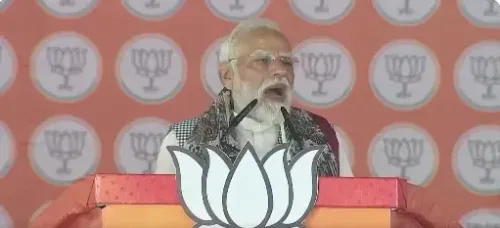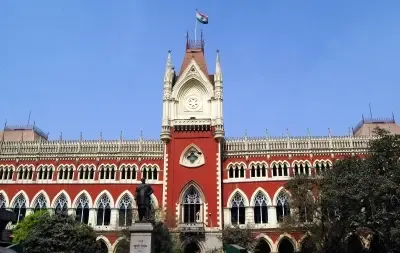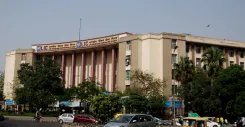Is the Haryana Government Launching a World Bank-Funded ‘Water Secure’ Program?

Synopsis
Key Takeaways
- The Haryana government is launching the 'Water Secure Haryana' program.
- It involves a total investment of Rs 5,700 crore, with significant support from the World Bank.
- The initiative aims to transform water management and irrigation systems in Haryana.
- The program is scheduled to start in 2026 and end in 2032.
- It will include advanced monitoring technologies and rejuvenation of water bodies.
Chandigarh, Nov 6 (NationPress) The Haryana government is set to unveil the 'Water Secure Haryana' initiative, a monumental project worth Rs 5,700 crore, with Rs 4,000 crore ($500 million) of this amount to be financed by the World Bank through its Program-for-Results framework.
This six-year endeavor, slated to kick off in 2026, seeks to revolutionize the state's irrigation and water management systems using integrated, data-driven, and performance-based strategies.
During a recent meeting with World Bank officials, Chief Secretary Anurag Rastogi referred to this initiative as a “paradigm shift” in the state’s water management strategy.
He emphasized that this initiative will significantly contribute to the vision of transforming Haryana into India’s first truly water-secure state by the program's conclusion in 2032.
The Chief Secretary also pointed out that this project will incorporate a component of Participatory Irrigation Management (PIM) and urged the World Bank to provide valuable insights in this area.
A senior representative from the World Bank characterized the initiative as “more than just an irrigation project”, underscoring it as the blueprint for Haryana to achieve water security.
This program will implement direct interventions in 14 strategic irrigation clusters across 18 districts, addressing a culturable command area (CCA) of 363,546 hectares.
In a similar vein, the remaining districts will receive funding from NABARD, the state budget, or other agencies.
While the physical improvements will be concentrated in specific clusters, the planning and institutional reforms will benefit all 22 districts.
A total of 1,798 km of canals across the 14 strategic irrigation clusters will be modernized with advanced automation and real-time monitoring systems such as RTDAS and SCADA.
Approximately 80 water bodies in various districts of southern Haryana will undergo rejuvenation to improve groundwater recharge, while water from four major sewage treatment plants in Jind, Kaithal, and Gurugram will be treated and reused to irrigate 11,500 hectares of agricultural land.









